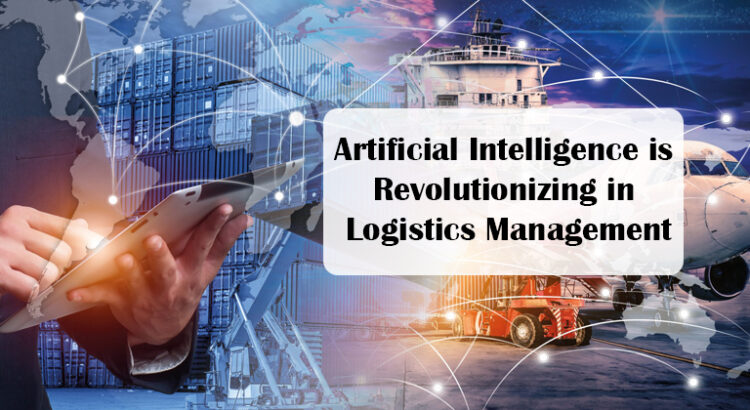It is perceived by some of the most prominent leaders that today is the era of the Fourth Industrial Revolution. Now, this means that the different branches of science are coming together and new magnificent results of human genius have wonderfully changed the picture of the world. It won’t be a moment of a surprise if you find yourself talking to your computer as if it were your real companion? Even though presently we don’t see the computer as a full-fledged friend, however, world-leading scientists are putting great efforts to make the computer think as if they were human beings.
Soon we can see our gadgets processing a large amount of information, helping us solve daily issues however still they can’t be compared to the human brain at least yet. But artificial intelligence in business can change things tremendously.
Earlier then-President Barack Obama, MIT Media Lab Director Joi Ito, and Wired Editor-in-Chief Scott Dadich got together for an issue of the magazine Obama guest-edited. There Obama stressed, AI, or at least specialized AI, “has been seeping into our lives in all sorts of ways, and we just don’t notice.”
Today AI in the form of machine learning, and complex algorithms are turning out to be a bigger factor in users’ mobile devices, inside data centers and some industries, ranging from retail to manufacturing. With the evolvement of AI, we need to see how it impacts the way business gets done, the relationship between workers, companies, and technology, as well as society writ large.
Here let’s explore the future of AI in the business arena and what we can expect from it in the coming years:
Virtual Assistance
The apt way to use artificial intelligence is for virtual assistants. Many of us have already experience speaking into the phone to find answers to basic questions, like directions to the nearby grocery store or who invented the telephone. It has become such a commonplace and we don’t even stop to think, and a decade ago it would have seemed like some kind of science fiction.
Nowadays companies even deploy chatbots for various uses, with most obvious being customer service. Even though, few believe that it rather causes more issues than it solves, as for how often you do perceive yourself talking to a machine when caught in a terrible situation. Still, there is potential in blending machine-driven assistance with human customer service.
For instance, in the case of a spike in demand for customer service, when a plan gets delayed or when cable service unexpectedly goes out. Then an artificial intelligence can be there for your rescue by answering questions like, what other flights are available or how much time will it take for the service to be restored.
When deployed in such a manner, customer service has a lot of scopes to be enhanced, by allowing human agents to focus on more complex issues.
Getting Insights
Why Data is being called the new oil is because it is mainly the raw material of the digital economy. Earlier it was trapped in a vast maze of incompatible database and protocols or even filing cabinets, however, now it is quickly turning into a fungible commodity that can be accessed by new technology platforms like Hadoop and Spark.
However, the same as oil, data is usually useless without adequate machinery that transforms it into something that is valuable. This is the role that machine learning begins to play. In today’s time, systems can not only take in billions of data points and analyze them in minutes, but they can also learn from the data and improve over time.
Some of the renowned leaders have even used machine learning technology to build a system that can predict a consumer’s demand for a mortgage based on specific life events and also market-based factors. This way loan originators can recognize high-value prospects earlier as well as increase deal flow.
In fact, artificial intelligence systems are so powerful that they are even capable of learning, which is not the case with purely statistical approaches. This way they can adapt when change noticed in market behavior, and it also improves performance as more data comes in.
Related Blog: APPLE WWDC 2017: KNOW ALL ABOUT THE BIG ANNOUNCEMENTS MADE BY APPLE
Automation of Manual Processes
Automation of work is something that remains constant throughout the rise of technology. First, labor-saving machines such as tractors and home appliances came in and then industrial robots and basic systems to automate things like travel reservations were introduced. And today even more advanced robots are capable of working alongside humans in factories.
It is seen that artificial intelligence is quickly automating routine cognitive processes the same as industrial era machines automated physical work. This is one trend that is already underway. Smart algorithms are seen replacing junior lawyers for legal discovery and companies such as Narrative Science can do routine journalistic work. Not only these technologies perform a great job, but they are even capable of working 24 hours a day without coffee breaks.
Unlocking Structured Data
Earlier mostly all of the data analyzed by us was structured data, the kind that gets captured and stored in a database. This way we were quite good at deriving insights from data generated for that purpose, such as sales from a cash register or answers to a consumer survey, however, most everything else got lost.
It was something of big concern, as structured data represents just a small part of the information available to us. It has been estimated that 80% of digital data is unstructured. Even though today analyzing unstructured data is a small area, but in the next decade, it is going to be the most impactful.
The ability to understand consumer conversations is also where the big potential lies. There is a company, named Mattersight, which uses call center conversations to recognize customers’ personality types. This way they can be served by someone with a compatible service style. So this way we are just beginning to unlock the potential of unstructured data. This helps in catering best, innovative and reliable mobile app solutions across the globe.
Apple #wwdc2017 : All the Important Announcements made by Google https://t.co/qjnRCaejQi pic.twitter.com/9AANClMcYx
— OctalInfoSolutionSG (@octalsg) August 2, 2017
Conclusion: We are entering a new era of cognitive collaboration where machines become a lot more than just agents to execute tasks, as they also help in understanding the world and make better decisions. So, let’s look forward to it.















